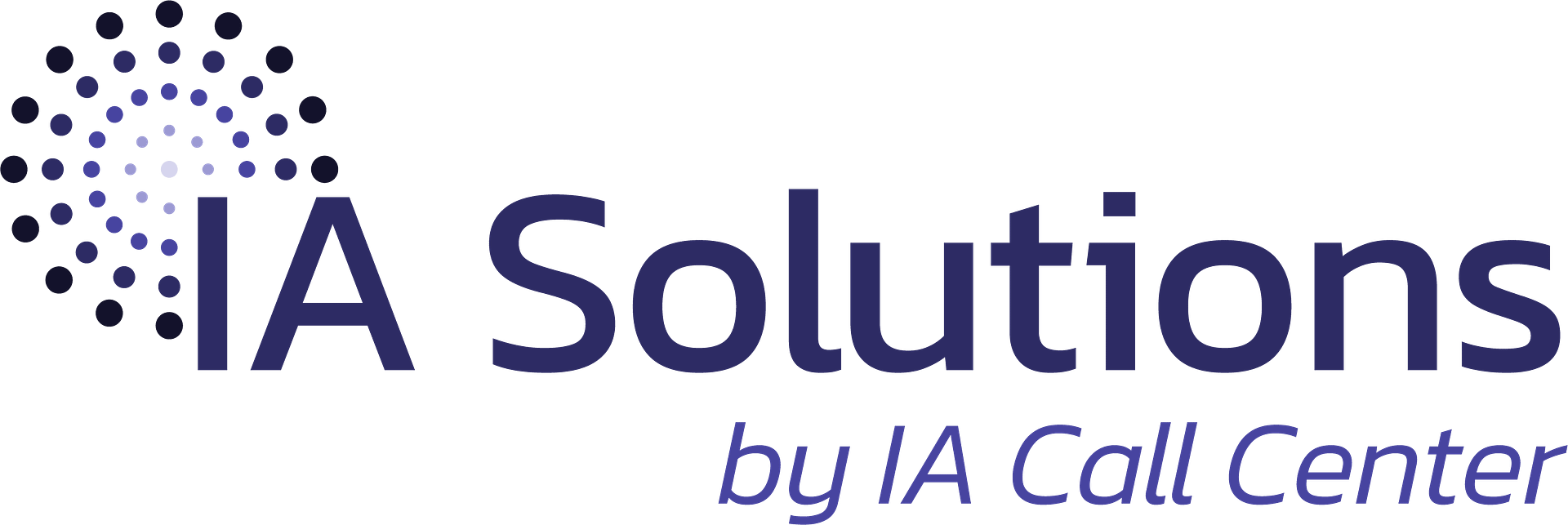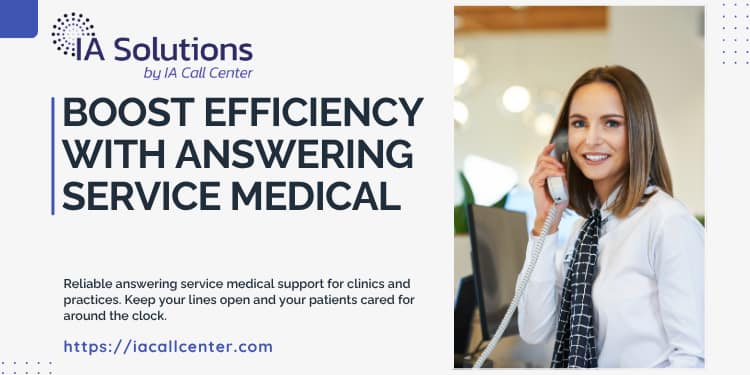In the fast-paced world of healthcare, keeping up with patient calls and administrative tasks can feel like a constant challenge. Many medical practices find themselves stretched thin, with staff juggling phones, scheduling, and patient care all at once. This is where an Answering Service Medical can step in. These specialized services act as an extension of your practice, ensuring that every patient interaction is handled professionally and efficiently, freeing up your team to focus on what matters most: providing excellent care.

Key Takeaways
- An Answering Service Medical provides round-the-clock availability, meaning no patient call goes unanswered, day or night.
- By managing routine calls and scheduling, these services significantly reduce the administrative burden on your staff, allowing them to dedicate more time to in-office patient care.
- Implementing an Answering Service Medical can lead to improved patient satisfaction through prompt, professional communication and fewer missed calls, ultimately strengthening patient trust and retention.
Why 24/7 Medical Answering Services Are Essential for Modern Healthcare Practices
In today’s fast-paced medical world, practices are constantly juggling patient care, administrative tasks, and communication. It’s easy for important calls to get missed, especially outside of regular business hours. This is where a 24/7 medical answering service steps in, acting as a vital support system.
Think about it: patients don’t only have questions or urgent needs during a 9-to-5 workday. They might experience a concern late at night or on a weekend. If your practice can’t answer those calls, patients might feel ignored or have to wait until Monday, which can be stressful for them and potentially delay necessary care. A dedicated healthcare answering service ensures that every call is handled professionally, no matter the time. This round-the-clock availability is not just a convenience; it’s a necessity for building patient trust and providing continuous support.
Here’s why it’s so important:
- Always Available: Patients can reach out anytime, day or night, weekends and holidays included. This means urgent issues get addressed promptly.
- Reduced Staff Strain: Your in-house team can focus on patients in the office, rather than being constantly interrupted by phone calls.
- Professional Call Handling: Trained operators manage inquiries, take messages, and schedule appointments, ensuring accuracy and a positive patient experience.
- HIPAA Compliance: These services are designed to protect sensitive patient information, adhering to strict privacy regulations.
The constant flow of patient calls can easily overwhelm a busy medical office. Without a reliable system in place, messages can get lost, appointments can be missed, and patient satisfaction can drop. A professional answering service acts as a crucial extension of your practice, managing these communications effectively.

Implementing a service like this can significantly improve how your practice operates. It means fewer dropped calls, better appointment management, and a more consistent patient experience. For practices looking to stay competitive and patient-focused, integrating a 24/7 medical answering service is a smart move.
How Medical Answering Services Improve Patient Satisfaction and Retention
When patients call your practice, they’re often looking for reassurance, information, or a way to manage their health. How those calls are handled makes a big difference in how they feel about your practice. A good medical answering service means that every call, whether it’s a simple question or an urgent concern, is met with a professional and timely response. This consistent, high-quality patient call handling builds trust. Patients feel heard and valued when they know their calls are important, even outside of regular office hours. This kind of attention directly impacts how satisfied they are with the care they receive.
Think about it: no one likes being put on hold for ages or having their calls go to voicemail only to wait hours for a callback. A dedicated medical office answering service smooths out these rough edges. They can manage appointment scheduling, answer common questions, and relay messages accurately, freeing up your in-house staff to focus on patients in the office. This efficiency means fewer errors and less frustration for everyone involved.
Here’s a quick look at how it helps:
- Reduced Wait Times: Patients get connected to help faster, decreasing frustration.
- Consistent Communication: Every patient receives a professional response, regardless of the time of day.
- Accurate Message Taking: Important details aren’t missed, leading to better follow-up care.
- Improved Accessibility: Patients can reach someone when they need it, offering peace of mind.
The ability to consistently provide prompt, accurate, and empathetic communication is a cornerstone of patient loyalty. When patients feel their needs are met efficiently and respectfully, they are more likely to return for future care and recommend your practice to others. This positive experience is not just about answering the phone; it’s about reinforcing the patient-provider relationship at every touchpoint.

Ultimately, a reliable medical answering service isn’t just about managing calls; it’s a strategic tool for building stronger relationships with your patients. By ensuring every interaction is positive and professional, you foster loyalty and encourage patients to stay with your practice for their healthcare needs. This focus on patient experience is key to long-term success and can be a significant factor in patient retention.
Reducing Administrative Burden: Free Your Staff to Focus on In-Office Care
Running a medical office often feels like juggling too many things at once. Your front desk staff might be on the phone constantly, trying to book appointments, answer patient questions, or sort through messages. This constant interruption can really slow things down and pull focus away from the people right there in the waiting room. Answering services take a huge chunk of these tasks off your team’s plate.
Think about it: every time the phone rings, it pulls someone away from checking in a patient, preparing a room, or handling important paperwork. This isn’t just a minor annoyance; it directly impacts the quality of care patients receive when they are physically present. When staff are constantly interrupted, it’s harder to give them your full attention, leading to potential errors or a feeling of being rushed. A medical answering service acts as a buffer, handling the bulk of incoming calls so your team can concentrate on the tasks that require their direct attention and in-office presence.
Here’s how it helps:
- Fewer Interruptions: Staff can focus on patients in front of them without the constant distraction of ringing phones.
- Streamlined Scheduling: Appointment booking and rescheduling are managed efficiently, reducing errors and double-bookings.
- Organized Messaging: All messages are captured and relayed accurately, so no important patient information gets lost.
By outsourcing routine call management, you’re not just reducing noise; you’re creating a more focused and efficient environment for both your staff and your patients. This allows your team to dedicate more time to direct patient care, which is the heart of your practice.
Consider the difference in daily operations:
| Task | In-House Staff (Typical) | With Answering Service |
|---|---|---|
| Calls Handled | Interrupts workflow | Dedicated support |
| Appointment Changes | Time-consuming | Streamlined |
| Message Taking | Manual, prone to error | Accurate, real-time |
This shift means your team spends less time on the phone and more time on patient care. It’s a practical way to improve office efficiency and reduce the feeling of being overwhelmed. When your staff isn’t bogged down by administrative duties, they can perform at their best, leading to better patient outcomes and a more positive work environment. This also helps prevent burnout, as the daily grind becomes more manageable. For practices struggling with the administrative load, medical office assistants can benefit greatly from this support.
Never Miss an Urgent Call: Emergency Protocols and After-Hours Coverage
Medical emergencies don’t stick to a 9-to-5 schedule. Patients might experience a sudden health concern late on a Friday or need to reach someone on a Sunday morning. Without a proper system in place, these calls can go unanswered, leading to patient distress and potentially serious consequences. This is where a dedicated medical answering service becomes indispensable.
A 24/7 answering service acts as an extension of your practice, providing a consistent point of contact for patients regardless of the time or day. They are trained to handle a variety of situations, from routine inquiries to genuine emergencies. When a patient calls after hours, the service can assess the situation. They’ll follow pre-defined protocols to determine the urgency. For non-urgent matters, they can take a detailed message and relay it to the appropriate staff member for follow-up during business hours. This prevents your staff from being overwhelmed with after-hours calls while still ensuring patients feel heard and cared for.
For urgent situations, the process is more immediate. The answering service will identify the critical nature of the call and immediately contact the on-call physician or designated healthcare provider. This ensures that patients with pressing medical needs receive prompt attention without delay. Having clear emergency protocols in place means that every urgent call is handled efficiently and professionally, reducing the risk of missed critical communications. This level of preparedness can prevent unnecessary trips to the emergency room and ensure patients get the right care at the right time.
Here’s how an after-hours service supports your practice:
- Immediate Triage: Trained operators can quickly assess the severity of a patient’s condition.
- Protocol Adherence: They follow your specific instructions for contacting on-call staff or emergency services.
- Message Relay: Accurate and timely messages are taken for non-urgent issues.
- Reduced Staff Burnout: Your team can rest assured that patient needs are being met without constant interruptions.
The peace of mind that comes from knowing your patients can always reach a professional, especially during a health crisis, is immeasurable. It builds patient trust and demonstrates a commitment to their well-being that extends far beyond the clinic walls. This continuous support is a hallmark of modern, patient-centered healthcare.
Choosing a service that offers robust emergency protocols is key. They should be able to integrate with your existing scheduling and on-call systems. This ensures a smooth handover of information and minimizes the chance of errors. A well-managed after-hours system not only supports your patients but also protects your staff from unnecessary stress and workload, allowing them to be more effective during regular office hours. This kind of reliable support is vital for patient communication.
Choosing the Right Medical Answering Service: HIPAA Compliance and Key Features
Picking the right medical answering service is a big decision for any practice. It’s not just about finding someone to pick up the phone; it’s about finding a partner that understands the sensitive nature of healthcare communication and can integrate smoothly with your workflow. The most critical factor to consider is HIPAA compliance. This isn’t just a suggestion; it’s a legal requirement to protect patient privacy. Any service you consider must demonstrate a clear commitment to safeguarding Protected Health Information (PHI) through secure systems, trained personnel, and robust data protection protocols.
Beyond compliance, several key features can make a significant difference in how well the service supports your practice and patients. Think about what your practice needs most. Do you have a high volume of calls after hours? Do you need help with appointment scheduling? Understanding these needs will help you narrow down your options.
Here are some features to look for:
- 24/7 Availability: Patients need help when they need it, not just during your office hours. A service that operates around the clock means urgent calls are always handled promptly.
- HIPAA Compliance: As mentioned, this is non-negotiable. Look for services that explicitly state their compliance and can explain their security measures.
- Call Triage and Routing: The ability to distinguish between urgent medical issues and routine inquiries is vital. The service should be able to route calls to the appropriate staff member or on-call physician quickly.
- Appointment Scheduling: Some services can directly book, reschedule, or cancel appointments, which can greatly reduce the administrative load on your staff.
- Bilingual Support: If your patient population speaks multiple languages, having operators who can communicate effectively in those languages is a huge plus for accessibility.
- Message Delivery: How are messages relayed to your team? Look for reliable and timely message delivery, whether via secure portal, email, or text.
When evaluating potential services, don’t hesitate to ask detailed questions about their technology, training, and emergency protocols. A good answering service should feel like an extension of your own practice, providing professional and compassionate support to your patients.

Consider a service that offers clear reporting on call volume, types of calls handled, and response times. This data can be incredibly useful for understanding your practice’s communication patterns and identifying areas for improvement. Ultimately, the right medical answering service should free up your staff, improve patient satisfaction, and provide peace of mind, knowing that every call is handled with care and professionalism.
When picking the best medical answering service, make sure it follows HIPAA rules and has the features you need. This is super important for keeping patient information safe and making sure your practice runs smoothly. Want to learn more about how we can help your medical office? Visit our website today!
Wrapping Up: A Smoother Practice Awaits
So, when you look at it all, bringing in a medical answering service really just makes sense for most practices out there. It’s not just about answering phones, it’s about making sure patients feel heard and cared for, even when your team is swamped. Think about it: fewer missed calls, appointments that actually get scheduled right, and staff who aren’t constantly pulled away from what they do best. It’s a simple way to keep things running better, day in and day out. Your patients will notice, and honestly, your team will probably thank you for it too. It’s a solid step towards a more organized and less stressful medical office.
Frequently Asked Questions
How does a medical answering service help my practice run more smoothly?
A medical answering service acts like an extra pair of hands for your office. It handles incoming calls, schedules appointments, and takes messages, especially when your staff is busy or after office hours. This means your team can focus more on caring for patients directly, and fewer calls or messages get missed. It’s like having a dedicated helper who ensures all patient communication is handled professionally and on time, making your whole office more efficient.
Will using an answering service make my patients happier?
Yes, it often does! When patients can reach someone quickly, even outside of regular office hours, they feel more cared for and less frustrated. Answering services provide prompt responses and ensure important messages get to the right people without delay. This consistent, professional communication helps build trust and makes patients feel valued, leading to greater satisfaction and a stronger connection to your practice.
Is a medical answering service safe for patient information?
Absolutely. Medical answering services understand how important patient privacy is. They follow strict rules, like HIPAA, to make sure all sensitive health information is handled securely. This means your patients’ data is protected, and your practice avoids potential legal issues related to privacy. You can be confident that patient information is kept safe and confidential.












